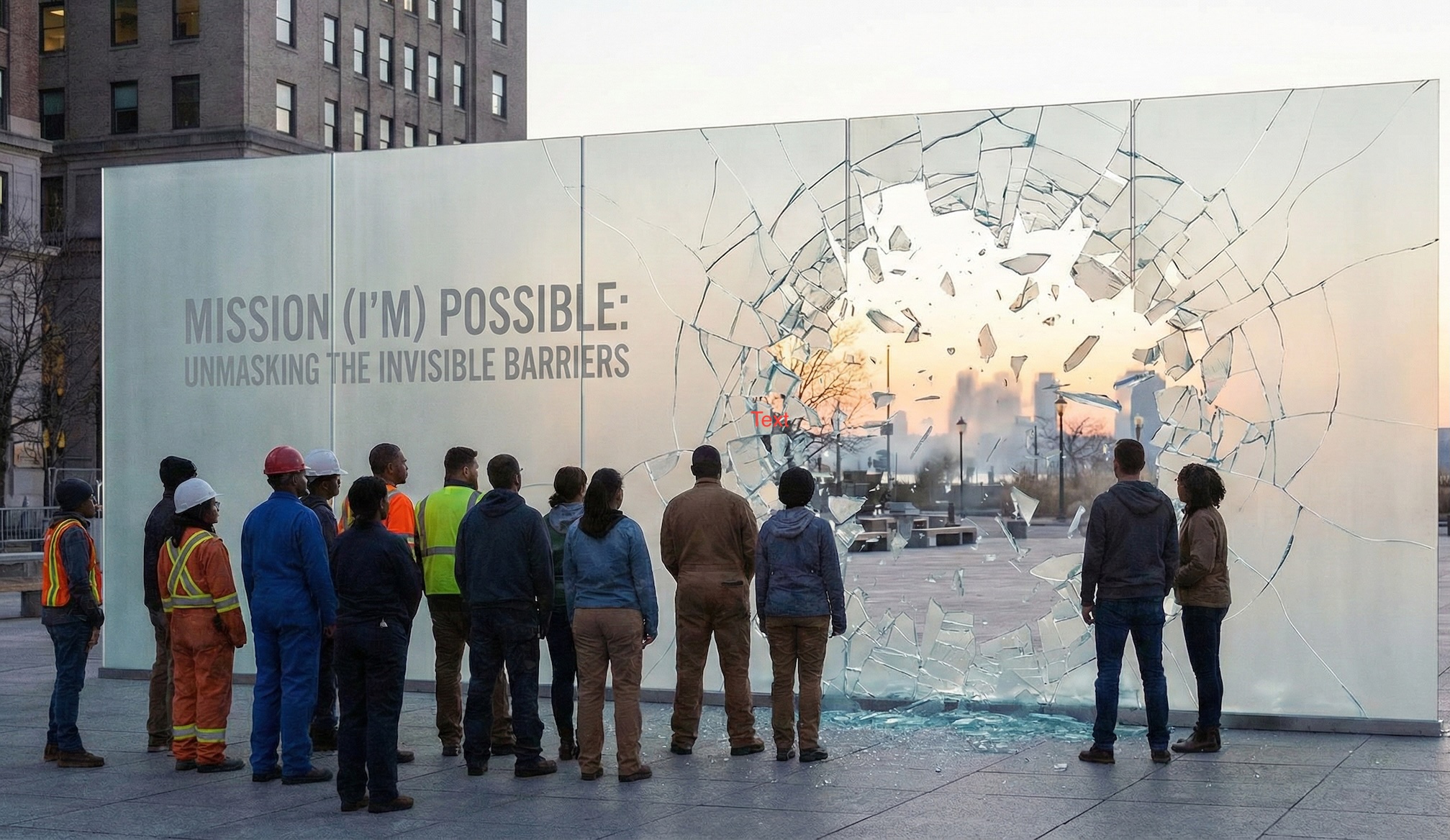Blogs

The Truths and Myths of Trust
August 3, 2023

It's well known, and perhaps even taken for granted, that trust is necessary for workplaces to thrive — trust among employees, and more importantly trust between leadership and their staff. But trust is something we continue to struggle with, despite the thousands of articles, books, and resources we can find on the topic with a quick online search.
The problem with trust is two-fold: first, we rarely think intentionally about the trust we've built (or failed to build) in our relationships; and second, trust is complex. Once we can better understand the truth about trust, and debunk the common myths around it, we'll be better situated to thrive in its presence. High-trust relationships, after all, allow us to function and perform better, offer greater resilience, and support our physical and emotional wellbeing.
Truth: Trust is a Paradox
Trust is crucial to building relationships and, as many of us have experienced, can be challenging to rebuild it after it has been broken. We have all experienced hurt and broken trust at some point, and the reality is that attempting to mend trust can sometimes lead to further pain and vulnerability. Nevertheless, when trust is bruised or broken, avoiding or aggressively approaching the issue won't solve the problem. To genuinely rebuild trust, we must take it seriously and be willing to face the risk of getting hurt again. The paradox lies in the fact that to build trust, we must be prepared to face the fear associated with potential hurt. Simply using the word "trust" without true commitment and understanding of its significance is not enough; it requires sincere effort and courage.
Truth: Trust is Subjective
Like the air we breathe, trust is a fundamental aspect of human relationships. However, trust is experienced differently by each of us based on our assumptions and lived experiences. Unfortunately, we often fail to recognize the impact of trust on our lives and relationships and how our behaviours and experiences shape our trust in others because we rarely talk openly about it. While much attention is given to love languages, little consideration is given to “trust languages” — the ways in which people perceive and interpret trust. Because of these differences in trust currencies, misunderstandings and unintentional breaches of trust happen regularly. To create stronger connections and align experiences, it's important to be more aware of trust dynamics and communicate openly about our feelings and expectations. What are your team members' preferences, what do they need to build trust, what are their values? We must learn these trust currencies so we can communicate and navigate them.
Myth: Trust is a Value
Contrary to popular opinion, trust is not a standalone value but rather a consequence of having strong values and putting them into practice. Treating trust as an abstract value makes it challenging to effectively integrate it into our actions and relationships. Instead, the focus should be on the values that underpin trust, such as integrity and collaboration. When people collaborate and hold each other accountable based on these values, trust naturally emerges. Without grasping this connection between values and trust behaviours, it becomes difficult to strengthen and foster trust in relationships. Thus, the key lies in recognizing the relationship between values and trust and using this knowledge to actively build and maintain trust in various aspects of life.
Myth: Trust Takes Time
It's not uncommon to hear “I don't have the time to spend building trust, my team will just need to trust me.” But trust is not built merely by spending time with someone — it's built by taking meaningful actions consistently over time. And because actions have a more significant impact on building trust than the passage of time alone, trust can be established relatively quickly if consistent actions are taken to foster it. Small, thoughtful gestures — based on our knowledge of others' trust currencies — can significantly influence the level of trust between leaders and their teams, colleagues, and communities.
Myth: Trust is a Two-Way Street
It may sound counter-intuitive to say that trust is not, in fact, a two-way street. But in a leadership context, trust needs to be established unilaterally first. Leaders must create an environment that fosters trust among employees before expecting them to reciprocate. While respect is something that should be given to each other by default, trust is different in that it requires a level of vulnerability and openness to the possibility of being hurt. Trust in a workplace environment is not automatically mutual but rather begins with leaders initiating the trust-building process by setting the right conditions for trust to develop within the team.
By acknowledging and understanding the complexities of trust, we can create an environment of open dialogue, clear expectations, and reciprocal trust among our teams, and then watch our people and our workplaces thrive.
Stephen de Groot is President and Co-Founder of Brivia.
He is the author of Responsive Leadership (Sage Publication, 2016) and Getting to Better: A New Model for Elevating Human Potential (Spring 2024)
Learn more about Stephen de Groot and his work.
 November 2, 2023
November 2, 2023






























